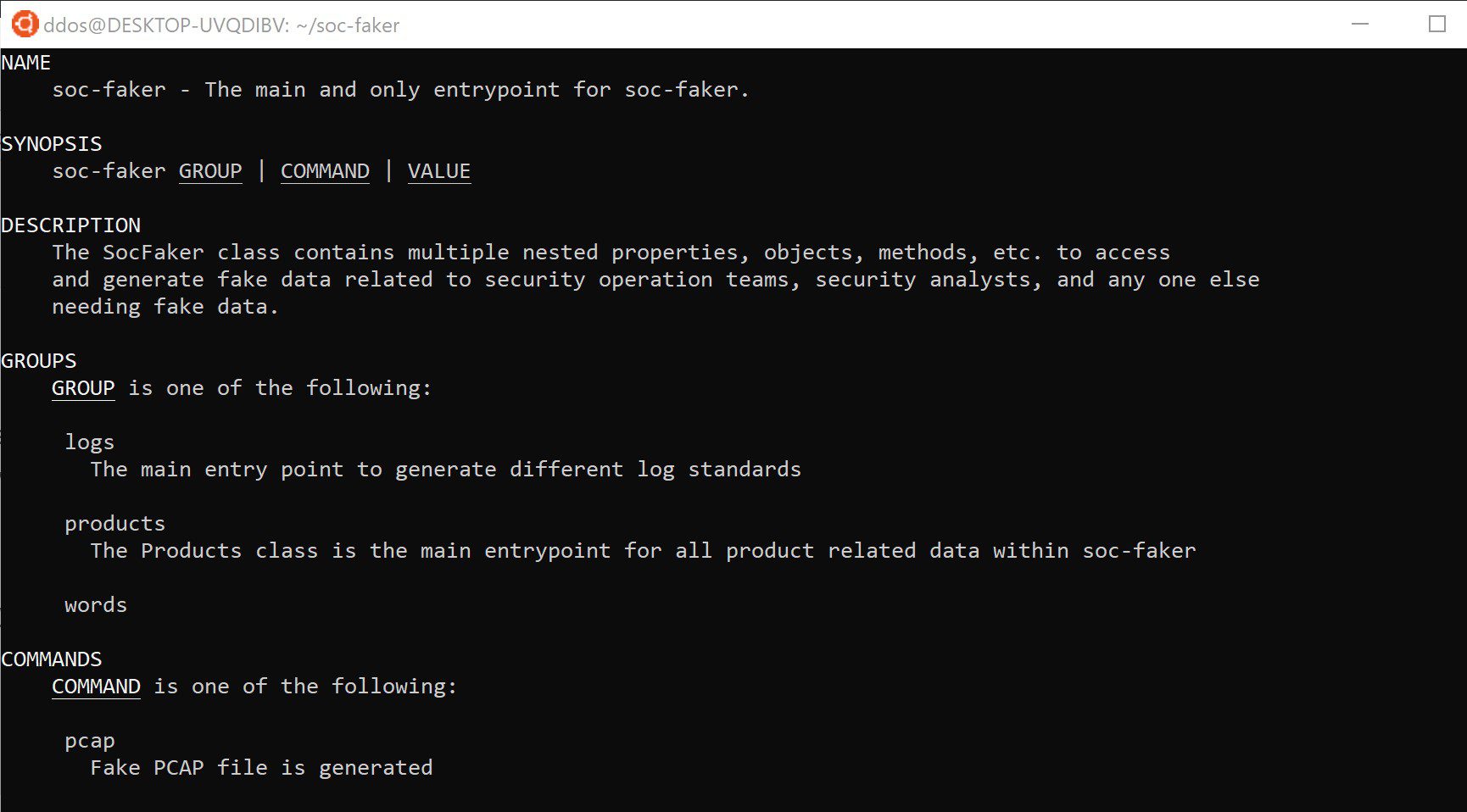
soc-faker
soc-faker is used to generate fake data for use by Security Operation Centers, Information security professionals, product teams, and many more.
soc-faker is compatible with Python 2.x and 3.x. You can install soc-faker using pip as well as cloning this repository directly.
At the time of writing this document, soc-faker has the ability to fake data for the following main categories. You can find specific details for each category by selecting the links below:
- Agent
- Alert
- Application
- Cloud
- Computer
- Container
- DNS
- Employee
- File
- HTTP
- Location
- Logs
- Network
- Operating System
- Organization
- PCAP
- Process
- Products
- Registry
- Timestamp
- TLS
- Url
- User Agent
- Vulnerability
- Words
Install
pip install soc-faker --user
or
git clone https://github.com/swimlane/soc-faker.git cd soc-faker python setup.py install
Usage
It is a Python package that can be imported or be used via the command-line utility to generate fake data related to security tools, products, and general data related to security.
Importing soc-faker
After you have installed soc-faker from source or using pip you can import and instantiate it by doing the following:
from socfaker import SocFaker
sc = SocFaker()
Once you have instantiated an instance of soc-faker you can then access any of the different properties and methods available based on your needs. If you would like to see soc-faker in action, then please see the bin/test.py script in the repository under the bin folder for an example of all available properties and methods.
Additionally, please read the documentation for more details about each available property and method.
Command-Line Usage
When soc-faker is installed, it automatically creates a command-line utility for your use. This utility can be accessed by simply typing soc-faker in your shell of choice.
To see soc-faker help type:
soc-faker
# or
soc-faker --help
 You can access each property just like you can from the library, the only difference is you replace a
You can access each property just like you can from the library, the only difference is you replace a . between properties with space. For example, if you wanted to get some randomly generated hashes quickly you can run:
soc-faker file hashes
This will return the following to your shell:
If you run into any issues, just type what you think is correct and the built-in help will guide you through all available groups, commands, etc. for each data point within soc-faker.
Copyright (c) 2019 Swimlane
Source: https://github.com/swimlane/